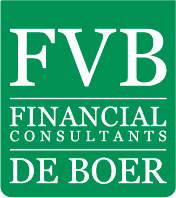
Why buy an apartment in the Netherlands?
If you are living in rented accommodation in the Netherlands, you’ve probably realised it is costing you a small fortune and that is money you would be better off putting into a home of your own. As a rule of thumb, if you are planning to live in the Netherlands for more than three years, it makes good financial sense to buy rather than rent.
Much of course depends on where you would like to live, but there are many advantages to buying property in the Netherlands. For a start, you are making a good financial investment and you are putting down roots.
One thing to think about when buying an apartment: you will probably become part of a VvE, the Vereniging van Eigenaren, or homeowners association. The VvE represents all homeowners in the block. A big property may have 10, 20 or even 100 owners, a smaller one just two or three.
If you live in a detached or terraced home everything – be it the foundations, the roof or dealing with the dead tree in the garden – is up to you. But if you live in an apartment you technically own a share in the building. And that means the roof and the foundations are shared by all the owners – and that they are all responsible for the costs of repairs to the exterior and communal areas of the property as well.
How we work: five steps to your dream apartment
Step 1: Find out how much you can borrow
The experts at FVB de Boer Financial Consultants can help you work out how much you can borrow and how much you are likely to need in other costs. Once you have this information to hand, you can start really looking, because you will know how much financial room you have. In addition, the Dutch housing market is fast moving, so it is wise to be ready to sign a mortgage contract as soon as you find the perfect place.
Step 2: Find an estate agent (makelaar)
If this is your first home buy in the Netherlands, we really do recommend you sign up with an estate agent. It is usual for the seller and the buyer to each have their own makelaar, who will negotiate on their behalf. Ask friends and colleagues who they would recommend or look for an agent who is specialised in the neighbourhoods you would like to live in.
Step 3: Start looking
Now is the time to start scoping out the market and seeing what is out there, and what you can afford. Keep your makelaar in the loop and visit as many places as you can. If you find somewhere that feels right, walk around the neighbourhood to get a feel of the area.
Step 4: Check out the VvE
It is really important to check out who is running the VvE and how much money is in its reserves. If the reserves are big enough, you won’t be called on to make a sudden investment if something needs doing unexpectedly.
You should also check out if the VvE has drawn up a multi-year maintenance plan (meerjarig onderhoudsplan) which sets out what decisions have been taken about painting the outside windows, for example. You may discover that major work is about to be carried out, there is not enough money in the reserves, and that you will have to stump up part of the bill for that as well. Your makelaar can help you with this.
Step 5: Agree the deal
Once you’ve agreed the deal, you and the seller will sign a pre-sale agreement (koopovereenkomst) or provisional contract (voorlopig contract). This has to be done via a notary – a type of lawyer who specialises in civil contracts. Once the mortgage has been finalised – which won’t take long if you’ve already started the process – you and the buyer will sign a completion contract and the apartment is yours.
Our financial services
FVB de Boer Financial Consultants can help expats in the Netherlands and Dutch nationals who live abroad with a wide range of financial services, from mortgage advice, to help with asset management and retirement planning.
Why use FvB de Boer Financial Consultants?
Our mortgage advisors have a long track record of working with expats. They understand the unique needs of expat borrowers and the challenges they face.
Our track record is second to none. We have been helping international workers get a mortgage in the Netherlands and with other financial issues since 1998.
We are registered with both the Dutch Financial Markets Authority (AFM) and the Dutch Central Bank (DNB). These regulatory bodies ensure that our advisors adhere to strict guidelines and provide high-quality service. We are also completely independent, so you know you are getting the best deal to fit your particular situation.
To talk to one of our experts about getting a mortgage to buy an apartment, please get in touch.


